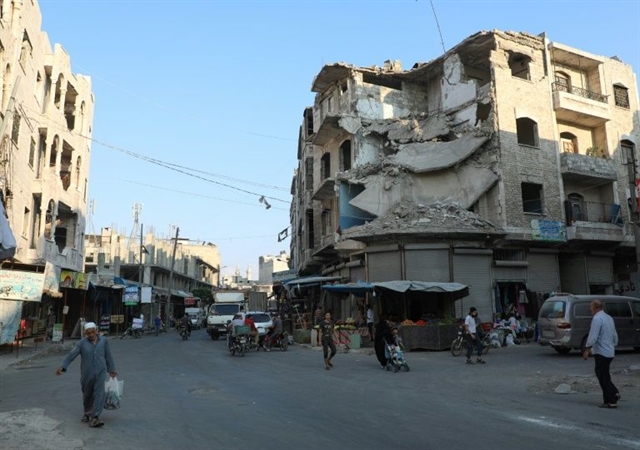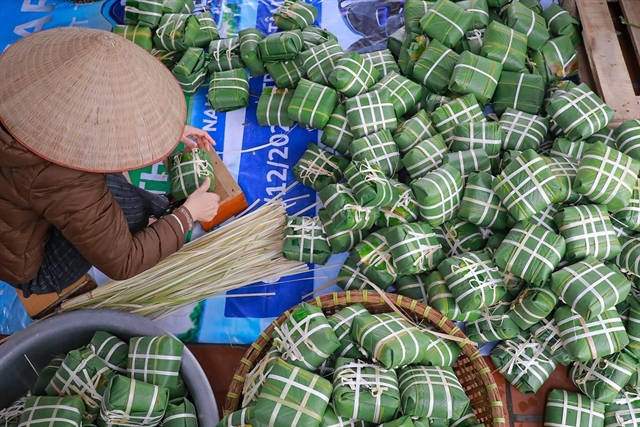 World
World


|
| People walk near heavily damaged buildings in the rebel-held city of Idlib in northwestern Syria on September 16, 2019. — AFP Photo |
UNITED NATIONS, United States — Russia and China on Thursday vetoed a UN Security Council resolution backed by 12 of the 15 member states that called for a ceasefire in Syria's war-torn Idlib province.
It was Russia's 13th veto of a UN resolution since the Syrian conflict erupted in 2011, highlighting the Security Council's impasse over the issue.
Germany, Belgium and Kuwait had led the push for the resolution, noting that half a million people have been displaced in Idlib since government forces opened an offensive four months ago.
They warned that the conflict could become the century's worst humanitarian crisis if the fighting persisted, and urged Russia not to veto what they said was a "purely humanitarian" measure.
But following two weeks of negotiations, Russia quashed the text after pressing unsuccessfully to include an exception for "anti-terrorist operations."
The failed resolution said that all parties should cease hostilities "to avoid a further deterioration of the already catastrophic humanitarian situation in Idlib Governorate, beginning at noon Damascus time on 21 September."
Russia's ambassador to the UN, Vassily Nebenzia, denounced "the surge of humanitarian activism" by other members of the Security Council whenever the Syrian regime – which is backed by Russia – recovered territory.
"The resolution was flawed from the outset," he said, accusing its supporters of deliberately splitting the Security Council as world leaders prepare to converge on the UN General Assembly next week.
Deadly offensive
Russia and China countered by presenting an alternative resolution, which was easily voted down later in Thursday's session.
It had specified that the ceasefire would not apply to military operations against individuals, groups or entities "associated with terrorist groups".
Western nations said the wording was unacceptable, as it allowed too much room for interpretation and may not have stopped the bombing of civilians.
"Bombing hospitals, schools and civilian facilities is no help in the fight against terrorism," said Marc Pecsteen, Belgium's ambassador to the UN.
Russia supports the Syrian forces of Bashar al-Assad, which have been conducting a bloody four-month-long campaign to wrest the northwestern province of Idlib from jihadist forces.
"We must not politicise the humanitarian issue," said China's UN ambassador Zhang Jun, asking for all groups to participate in the reconstruction of Syria.
But his French counterpart Nicolas de Riviere said that "as long as there is no solution both on the humanitarian side and the political side", France, European countries and others would not join any reconstruction plan.
A deal Russia and Turkey reached last year was meant to prevent a bloodbath in Idlib, but bombardment re-started in late April.
Close to 1,000 civilians have been killed since then, mostly in air strikes and shelling, according to the Syrian Observatory for Human Rights.
"The humanitarian situation remains alarming," said Ursula Mueller, assistant secretary general for the UN's Office for the Coordination of Humanitarian Affairs.
On Wednesday, UN Secretary-General Antonio Guterres joined International Committee of the Red Cross chief Peter Maurer in appealing for an end to air and artillery bombardments of Idlib, citing the devastating impact on civilians. — AFP




